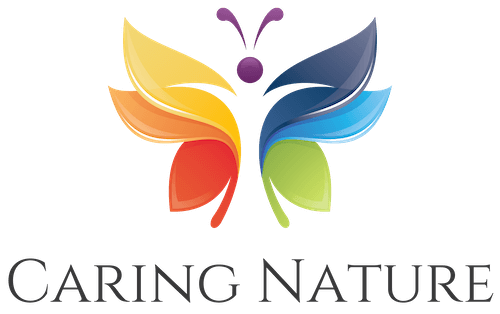Stress vs. Depression: What’s the Real Difference?

Stress and depression are two different terms, but many people think they mean the same thing. In reality, they are distinct conditions that also require different approaches to treatment.
Stress refers to the body’s natural reaction when trying to adapt to challenges or pressure. Depression, on the other hand, is classified as a mental disorder.
Excessive stress can lead to depression, and people with depression are also more vulnerable to stress. To help you understand the differences between the two, Caring Nature has provided a full explanation below.
What is Stress vs. Depression?
Stress is a condition in which a person’s body and mind are adjusting to pressure. Furthermore, the World Health Organization (WHO) explains that every individual experiences stress to some degree.
Stress can have both positive and negative effects. However, its impact can actually be managed, and a person’s ability to control stress plays an important role in their overall well-being.
A Healthy Lifestyle for a Better Life
Meanwhile, the American Psychiatric Association (APA) defines depression as a serious mental disorder. Depression has a negative impact, particularly on how we perceive the world.
More than 450 million people worldwide experience mental disorders, including depression. Of that number, around 154 million people suffer from depression. In Indonesia, according to data from the Ministry of Health in 2023, 1.4% of the population was recorded as experiencing depression, with the highest prevalence found among young people aged 15–24, reaching 2%.
Depression can have very serious consequences, as those affected are at risk of engaging in harmful behaviors, including ending their own lives. For this reason, depression requires special care, ranging from initial check-ups at community health centers, consultations with psychiatrists, to treatment by mental health specialists.
Read also: Learn What Stress Is and How to Manage It
Key Differences Between Stress and Depression
From the definitions, it is clear that stress and depression are two very different conditions. To make it easier to understand, here are the main differences between stress and depression:
1. Duration
Stress can happen at any time, and how long it lasts depends on the level of pressure a person feels. Someone might get stressed over something small, like struggling to open a bottle, or over bigger challenges in life, such as problems at work, in relationships, or with finances.
Depression usually lasts much longer and can persist if it is not treated. Its severity is influenced by many factors including biology, psychology, environment, the amount of social support, and the medical care a person receives.
2. Causes
Stress is generally caused by specific pressures or situations that require quick adjustment. It often has a clear and direct trigger, such as a tight deadline at work, an argument with a partner, or financial difficulties.
Depression, on the other hand, usually has more complex causes and often appears without an obvious trigger. It may be the result of a combination of chemical imbalances in the brain, genetic factors, traumatic experiences, lack of social support, or deep feelings of loneliness.
3. Main Symptoms
The main symptoms of stress usually involve being more reactive to certain situations. For example, a person may become easily irritated or angry, feel restless or nervous, have trouble sleeping, or experience a racing heartbeat. These symptoms generally go away once the trigger is resolved.
Depression shows deeper symptoms that strongly affect daily life. People with depression often lose interest in things they once enjoyed, feel overwhelming guilt, and in severe cases may even have thoughts of death.
4. Impact on Daily Life
Stress can have both positive and negative effects, depending on how each individual perceives and manages it. Depression, on the other hand, has a much heavier impact on daily life and can lead to serious complications such as chronic physical problems, anxiety disorders, or substance abuse.
5. Coping
Stress can often be managed through healthy lifestyle habits and good self-care strategies. Depression, however, requires professional treatment from mental health specialists or doctors.
Live More Lightly by Learning Stress Management
Warning Signs You Shouldn’t Ignore
Recognizing the signs of stress as well as depression is very important in order to prevent more serious conditions. Here are some warning signs to watch out for:
Signs of Chronic Stress
While stress can sometimes have a positive role in helping the body and mind adapt to pressure, it can become very harmful if the following signs appear:
- Getting sick more often
- Changes in appetite and body weight
- High levels of irritability
- Avoidant behavior or social withdrawal
- A sense of losing control
- Feeling directionless or lacking purpose in life
- Procrastination
- Engaging in risky behaviors
- Dependence on addictive substances
Signs of Depression
Depression can only be diagnosed by a qualified mental health professional. If you or someone close to you is experiencing the following symptoms, it is important to seek help at a community health center that provides psychological services, or consult directly with a psychologist or psychiatrist.
Common signs of depression include:
- Persistent sadness or feelings of emptiness
- Loss of interest in activities that were once enjoyable
- Feelings of hopelessness and pessimism
- Frequent feelings of guilt
- Irritability even over small things
- Withdrawal from social interactions
- Declining performance at work or school
- Avoiding responsibilities or daily activities
- Physical complaints without a clear cause
Live Better with Caring Nature
Stress and depression are two very different conditions. Stress can often still be managed, while depression requires professional guidance along with the right support system.
With Caring Nature, you can experience the benefits of a Mindfulness-Based Stress Reduction (MBSR) approach combined with holistic methods such as yoga, Ayurveda, mindset coaching, and Neuro-Linguistic Programming (NLP).
Now is the time to manage stress with greater calm, rediscover your balance, and build a healthier and more productive lifestyle. Start your journey toward a more complete self with us today by clicking the link below.
